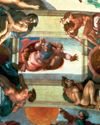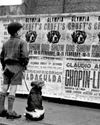
MY first encounter with huts of an adventurous nature came in Austria when, as an 18-year-old, my Alpine career started —and almost came to a premature end—in the Stubai Alps. As well as my first 11,000ft peaks, it was also my introduction to the shock of an ‘Alpine start’. To be safely off the mountain before the mid-morning sun triggers rockfall, an Alpinist needs to leave the hut in the early hours. The deep freeze of a pre-dawn glacier is always brutal, but there is the compensation of an Alpine dawn, as the sun creeps over the peaks to set the summit snows alight in a pink blaze against an azure sky.
Doug Scott—who was well known for the first successful ascent of Everest’s southwest face—summed up Alpine huts: ‘When you arrive there’s supper and a warm bed, but getting up a few hours later, to head off, into the dark and cold, well, that’s adventure. Uncertain outcomes and all that, but then dawn breaks—wonderful!’
Supper, too, is all part of the ritual of an Alpine hut and is usually a sociable affair.
In the case of the French, it is also a stylish one with Club Alpin Français-monogrammed crockery. Afterwards, digestion invariably kicks in and a trip to an airy ‘thunder box’ is required. Few, however, surpassed the outhouse of the—now sadly demolished— Abbots Pass Hut. At 9,596ft, located between Mount Victoria and Mount Lefroy in the Canadian Rockies, there was a vista from this ‘loo with a view’ that could captivate, even at risk of frostbite.
Alpine huts first appeared as mountaineering tourism, following the end of the pioneering ‘Golden Age of Alpinism’, developed from the mid 19th century onwards. At about the same time (and rather like Alpinism), fishing was ‘codified’ by British sporting gentlemen. Interestingly, both pursuits had their own London clubs—the Alpine Club and the Flyfishers’ Club—which set conventions. Like its Alpine cousin, a fishing hut was more than a simple shelter.
Esta historia es de la edición August 07, 2024 de Country Life UK.
Comience su prueba gratuita de Magzter GOLD de 7 días para acceder a miles de historias premium seleccionadas y a más de 9,000 revistas y periódicos.
Ya eres suscriptor ? Conectar
Esta historia es de la edición August 07, 2024 de Country Life UK.
Comience su prueba gratuita de Magzter GOLD de 7 días para acceder a miles de historias premium seleccionadas y a más de 9,000 revistas y periódicos.
Ya eres suscriptor? Conectar

A trip down memory lane
IN contemplating the imminent approach of a rather large and unwanted birthday, I keep reminding myself of the time when birthdays were exciting: those landmark moments of becoming a teenager or an adult, of being allowed to drive, to vote or to buy a drink in a pub.

The lord of masterly rock
Charles Dance, fresh from donning Michelangelo’s smock for the BBC, discusses the role, the value of mentoring and why the Sistine chapel is like playing King Lear

The good, the bad and the ugly
With a passion for arguing and a sharp tongue to match his extraordinary genius, Michelangelo was both the enfant prodige and the enfant 'terribile’ of the Renaissance, as Michael Hall reveals

Ha-ha, tricked you!
Giving the impression of an endless vista, with 18th-century-style grandeur and the ability to keep pesky livestock off the roses, a ha-ha is a hugely desirable feature in any landscape. Just don't fall off

Seafood, spinach and asparagus puff-pastry cloud
Cut one sheet of pastry into a 25cm–30cm (10in–12in) circle. Place it on a parchment- lined baking tray and prick all over with a fork. Cut the remaining sheets of pastry to the same size, then cut inner circles so you are left with rings of about 5cm (2½in) width and three circles.

Small, but mighty
To avoid the mass-market cruise-ship circuit means downsizing and going remote—which is exactly what these new small ships and off-the-beaten track itineraries have in common.

Sharp practice
Pruning roses in winter has become the norm, but why do we do it–and should we? Charles Quest-Ritson explains the reasoning underpinning this horticultural habit

Flour power
LONDON LIFE contributors and friends of the magazine reveal where to find the capital's best baked goods

Still rollin' along
John Niven cruises in the wake of Mark Twain up the great Mississippi river of the American South

The legacy Charles Cruft and Crufts
ACKNOWLEDGED as the ‘prince of showmen’ by the late-19th-century world of dog fanciers and, later, as ‘the Napoleon of dog shows’, Charles Cruft (1852–1938) had a phenomenal capacity for hard graft and, importantly, a mind for marketing—he understood consumer behaviour and he knew how to weaponise ‘the hype’.